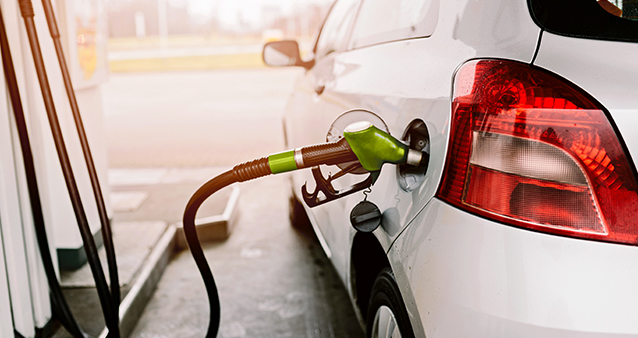The most fuel-efficient cars in South Africa in 2023

From budget-friendly city runabouts to family-focused, school-run and pavement-hopping SUVs, there are many car brands that offer buyers value for money and lower-than-average fuel consumption. Let's take a look at the most fuel-efficient cars South Africa has to offer.
On top of ever-increasing cost-of-living constraints and squeezed monthly household budgets, the cost per litre of fuel is making a dent in the average person's salary. While the price of diesel recently dropped, the cost of unleaded petrol is sitting at a hefty R23.01 per litre (R22.29 per litre at the coast). Compare this with R13.20/litre of 95-octane unleaded in April 2013, and R8.91/litre in 2008, and you'll realise the significant role that both the cost and ultimate usage of this commodity plays in the monthly budgeting of an average South African household.

How is fuel efficiency measured?
To see how fuel efficient a vehicle is, the amount of petrol in litres (L) used over 100 kilometres (km) is calculated. The lower the number of litres used per 100 km, the more fuel efficient the vehicle is. Easy, right? But before we continue to look at some of the most fuel-efficient vehicles currently on sale in South Africa, it's worth noting that this list is based on claimed figures. These are the best result that each respective manufacturer achieved in a vehicle — in optimal conditions. For the purposes of this exercise, we'll quote litres per 100 km (L/100 km).
The most fuel-efficient cars in South Africa
Value-for-money cars
The plucky, modern interpretation of the Fiat 500 remains the most fuel-efficient car in the land, offering 4.0 L/100 km. It helps that it features a characterful 900 cc, two-cylinder engine packaged within a lightweight, two-door body, but there's also a lot to be said for the fun-loving nature of this Italian product.
A realised reward for a legacy of selling honest, value-packed and impressively frugal vehicles, Suzuki Cars is currently the third-best-selling brand in South Africa. It's no surprise then to find products like the Celerio, Dzire, S-Presso, Ignis and the popular Swift hatchback all offering claimed fuel consumption figures of less than 5.0 L/100 km.
Another Suzuki, badged as either a Baleno or Toyota Starlet, depending on which of these two brand's dealerships you visit, offers space for a small family with claimed fuel consumption of just 5.7 L/100 km.
Also read: 5 smart ways to save on fuel
Family cars and SUVs
Opting for a slightly raised driving position for improved outward visibility shouldn't necessarily translate to a penalty at the fuel pumps. Indeed, one of the best-selling vehicle ranges in South Africa, the Toyota Corolla Cross, includes a 1.8 hybrid derivative that boasts fuel consumption of just 4.3 L/100 km. Within this same segment, popular SUVs like the VW T-Cross, Kia Seltos and Renault Duster all offer derivatives capable of returning around 5.0 L/100 km.
Not yet impacted by the same strict emissions legislation that has seen turbodiesel technology all but outlawed in European markets, we're still able to purchase latest-generation diesel-powered vehicles in South Africa, and we should enjoy the benefits. One of these is suitably impressive fuel consumption. Did you know that the newest (assembled in South Africa) BMW X3 sDrive18d offers a claimed fuel consumption of just 5.2 L/100 km?
If you're looking to invest in a more fuel-efficient vehicle as the increase in fuel prices takes its toll, these are some of the options available to you. Be sure to visit Hippo's comprehensive Car Guide to find a vehicle that suits both your lifestyle and pocket best. While you may not be able to negotiate the cost of fuel, you can save by using Hippo.co.za to compare a range of South African Car Insurance brands.
This article is for informational purposes only and should not be construed as financial, legal or medical advice.
Hippo Blog Categories

































